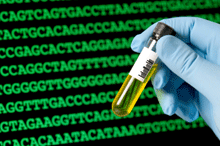The genomes of lung and skin cancer have been decoded by scientists at the UK-based Wellcome Trust Sanger Institute near Cambridge, which is the first time an entire cancer gene map has been created. The scientists say they have pinpointed specific DNA errors that may cause tumors in these two cancers, both of which have direct known causes—smoking for lung cancer and sun exposure for skin cancer.
Researchers predict these maps will offer patients a personalized treatment option that ranges from earlier detection to the types of medication used to treat cancer. The genetic maps will also allow cancer researchers to study cells with defective DNA and produce more powerful drugs to fight the errors, according to the the study's scientists [CNN]. News reports are heralding the new research as revolutionary, however it will be years, perhaps decades, before the full implications of the work are understood.
According to Mike ...














